Paid to be a guinea pig
Updated: 2013-10-31 08:04
By Yang Wanli (China Daily)
|
||||||||
Dirty tricks
In October, a recruitment notice was posted on an online chat group called Medical Trials. The poster was looking for two people to test an anesthetic agent. The trial was to be held over just two days, but the participants were promised 5,000 yuan each, far higher than the usual payment. More than 80 people turned up at the hospital named in the notice, hoping to be selected.
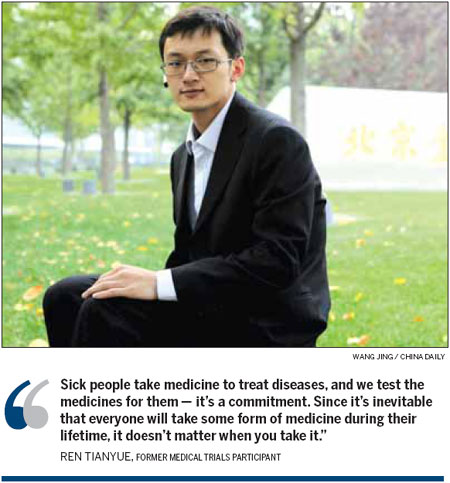
The Internet is awash with chat groups like Medical Trials. They don't just recruit participants for tests, but also showcase a variety of jobs offering good money for short-term work, including blood donation. Normally, each chat group has around 50 to 60 members.
But the number of willing subjects always outstrips the number of jobs on offer and as a result a whole range of dirty tricks has evolved, designed to maximize the profits of the participants, some of whom even indulge in chemical deception.
"In order to pass the health check, smokers often add a certain liquid to their urine sample to disguise the presence of nicotine. It's even possible to get a bogus certificate of good health by underhand means," said Ren.
He declined to say whether bribery is commonplace, but said it's crucial to maintain a good relationship with the "hunters" responsible for participant recruitment.
The health checks and the trials are often carried out in the same hospital. In most cases, the participants are isolated in the testing center, where daily care is available, and free meals and pajamas are issued. The period of isolation varies from one day to a week and the participants are paid according to the duration of the trial and the amount of discomfort incurred.
"If you are well-behaved and don't haggle too much over the payment, the hunters will be willing to call on you when more tests are being held," said Ren, who participated in more than a dozen trials between 2011 and July last year, earning about 40,000 yuan in total.
Inherent risks
To clearly identify the effect of the treatment on humans, it's essential to assess the pre-test condition of the participants. In the past, college students were the target group for phase one trials because of their youth and generally good health.
"A few of my classmates and friends agreed to participate in the higher-risk phase one trials because the money was so good. But I think those of us with deeper medical knowledge are unwilling to take the risk," said Wu Bian, a student majoring in clinical medicine at Nanjing Medical University, who participated in two medical trials, one for herbal toothpaste, the other for herbal treatments designed to improve blood circulation.
"The possibility of falling foul of a sample that will make you ill or endanger your life, although very rare, still exists," he said.
According to Ren, a large number of participants are poorly educated migrant workers. "Many are part-time security guards, who just want to make some extra money," he said.
"People involved in high-risk trials - for example, antibiotics or anti-cancer drugs - are paid more. I've heard that some people even paid their mortgages by participating in medical trials," he said. "The money they made must be at least tens of thousands."
But the trials involve much more than simply staying in a comfortable room, enjoying free, nutritious food and doing nothing but sleeping. Some include regular blood tests, which might require more than 20 tubes of blood. And the participants' daily activities are confined to a limited area where they can't even access the Internet.
"It's like being in jail. Eight or so participants share one room," said Ren. "There's little emotional empathy between the doctors and the participants. The medical staff in the trial center knew that most of us were only doing it for the money, so they rarely showed us any respect. You could sense their scorn by the way they spoke and looked at us."

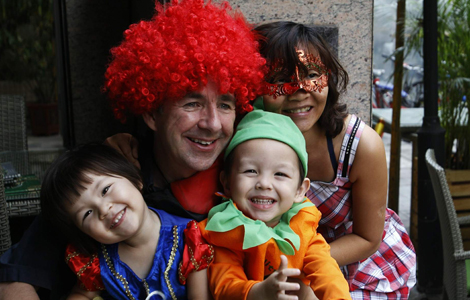
 Color-blind love
Color-blind love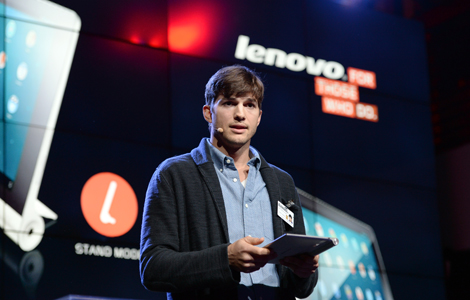
 Lenovo's new secret weapon: Hollywood star
Lenovo's new secret weapon: Hollywood star
 Brussels visit heralds closer trade ties for EU and China
Brussels visit heralds closer trade ties for EU and China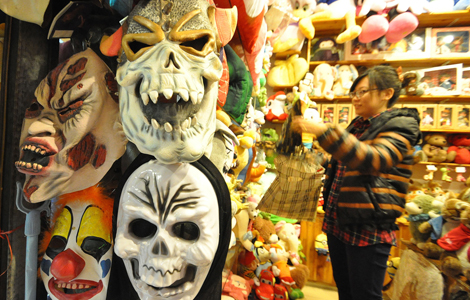
 Halloween gaining popularity but still sees cultural differences
Halloween gaining popularity but still sees cultural differences
 US embassy accused as 'spy hub'
US embassy accused as 'spy hub'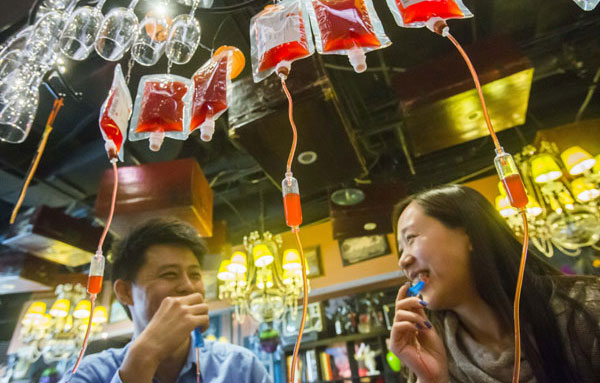
 Halloween beverage offers vampire experience
Halloween beverage offers vampire experience
 Lenovo launches new Yoga tablet
Lenovo launches new Yoga tablet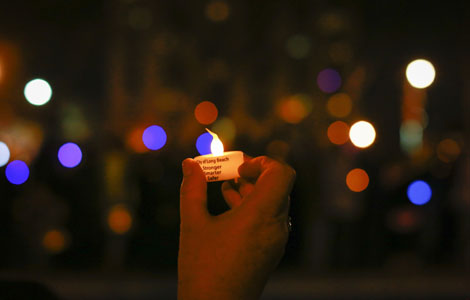
 Sandy anniversary
Sandy anniversary
Most Viewed
Editor's Picks

|

|

|

|

|

|
Today's Top News
US business council wants market-barriers reduced
Benefit held for NYC official’s ex-campaign treasurer
HIV epidemic needs education, not bath house bans
Survey examines education gap
Chinese cities victim of US spying scheme
Legislation to help reduce pollution
Govt pledges more housing
Halloween gains popularity in China
US Weekly

|

|





